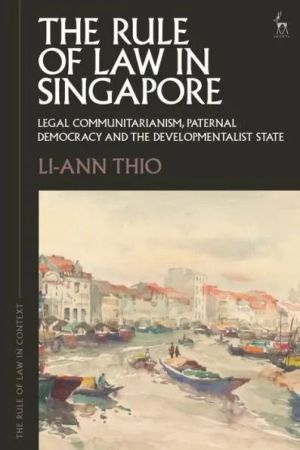
This book looks at the rule of law in the context of Singapore and reflects on what the Singapore case study contributes to the understanding of the rule of law.
Singapore has been both lauded and lambasted for vindicating and subverting the rule of law. While enjoying favour as a universal prescription for political justice and constitutionalism, the rule of law ideal is also challenged for being vague about what it means and requires. It remains an essentially contested conception, whose content is shaped by the underlying political, economic, social and religious public philosophy of a polity.
The book explores the reception and development of the Singapore Local System, its constitutional order and institutions, the political dimensions, judicial review and the context of democracy and civil rights.
Lucid and engaging, this book will be of interest to researchers working in constitutional law.